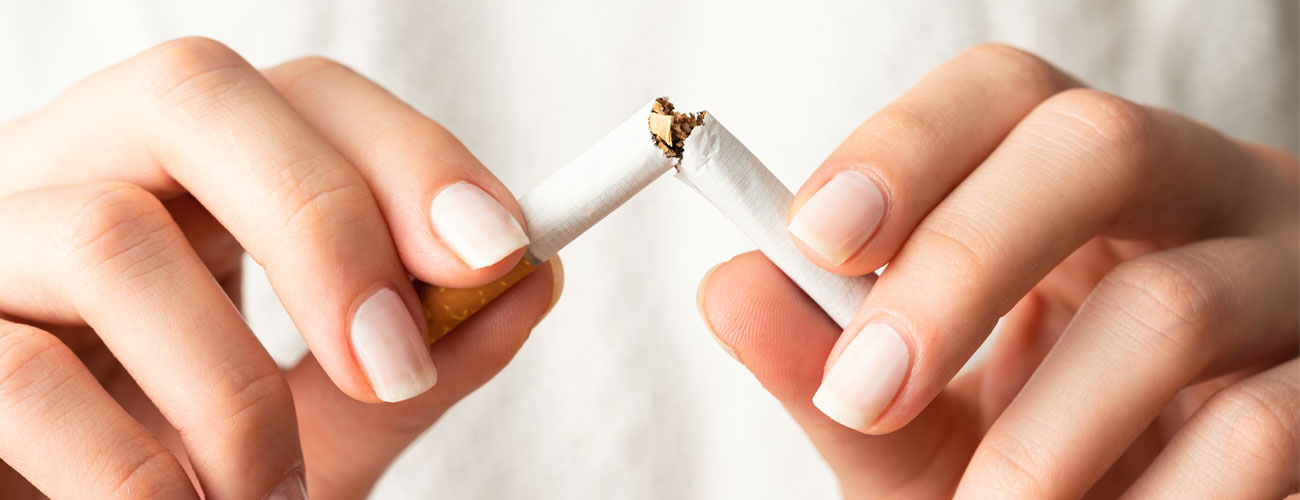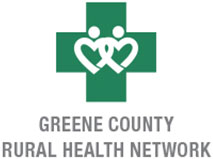
According to the ACS, about 32.4 million American adults still smoke cigarettes, and smoking remains the single largest preventable cause of death and illness in the world. Smoking causes an estimated 480,000 deaths every year, or about 1 in 5 deaths. And more than 16 million Americans live with a smoking-related disease.
Are You Ready to Quit Smoking?
Take the quit smoking quiz.
Preparing for Your Quit Date
- Pick a Date: When it comes to choosing a quit date, sooner is better than later. Many smokers choose a date that is about two weeks away. This will give you enough time to prepare. Really think about your quit date. Avoid choosing a day where you know you will be busy, stressed, or tempted to smoke (e.g., a night out with friends or days where you may smoke at work) Circle your quit day on your calendar so you will see it every day.
- Remove Tobacco Products: Remove tobacco products from your home and car, including cupboards and pockets. Toss the ashtrays, lighters, and matches. Do the same thing at work.
- Let Loved Ones Know You are Quitting: Tell your spouse, friends, and coworkers about your Quit Date and ask for their support once you do quit. Ask other smokers in the house to quit or to not smoke around you. Tell them to expect some temporary mood changes, including being grumpy or anxious. They will understand.
- Review Your Past Attempts: Quitting smoking is hard, you may have tried to stop in the past. Try to identify what went wrong and what things may have helped.
- Make Your Lists: List your reasons for quitting. List your triggers. List how you will manage your triggers, (see below for ideas: “How to Mange Those Triggers and Cravings”) List how you will reward yourself. Keep your lists on your smartphone, laptop, 3×5 card, or whichever place makes it easy for you to access.
- Clean! Schedule to have your teeth cleaned. Clean your house, including closets and drapes, clean your car, and clean your office. Even the slightest smell of cigarettes can cause a craving.
- On your QUIT DAY: Be good to yourself. Eat food you like. Go to a movie. Play your favorite sport or game. Take a long bath. Go to a ball game. Buy yourself something. You get the idea.


Withdrawal
Expect withdrawal symptoms such as bad mood, urge to smoke, and difficulty concentrating. These typically peak within 1-3 weeks after quitting but prepare yourself, because in some cases the symptoms could last a few months.
Avoid Even One Cigarette
- You may fool yourself into thinking that you are doing really well so you can handle just one cigarette. It won’t hurt, you say. But, it will! One cigarette can lead to another. Don’t undo all your progress.
- You make think you cannot deal with never being able to have another cigarette for the rest of your life, but think only about not smoking today. Quitting happens one day at a time and sometimes one hour at a time! About 40 million Americans have quit and so can you.
How to Manage Your Triggers and Cravings
- Expect triggers, particularly during the first few weeks. Triggers could include being around other smokers, being under time pressure, alcohol, playing cards, finishing a meal, etc. Think about how you will overcome these triggers. Read on.
- Stay away from activities that you connect with smoking such as watching your favorite TV show, sitting in your favorite chair, having a drink before dinner, talking on the phone, playing cards, taking a work break, drinking coffee, seeing someone else smoke, cooling off after an argument, having sex. After a meal, leave the table and go brush your teeth or go for a walk. Change your patterns.
- When you feel the urge to smoke, talk with someone, go for a walk, drink water, start a task or a home project, work on your hobby, exercise, take a hot bath, read a book, go to a movie, do a puzzle. Keep busy. Hit a pillow, squeeze a ball, weed your garden, even yell and scream a bit, do some deep breathing.
- If you miss holding something in our hand, then hold a pencil a paper clip, a marble, or a water bottle.
- If you miss holding something in your mouth, try toothpicks, cinnamon sticks, lollipops, hard candy, sugar free gum, carrot sticks, apples, cherries, sunflower seeds, celery, raisins.
- Light incense or a candle instead of a cigarette.
- Call the NYS Quitline number at 1-866-697-8487.
- Attend a local cessation group. Go to the NYS DOH Quitline home page at nysmokefree.com and click “Resources” and then click “Local Support Programs.”
- Put money in a jar every time you have a craving that you can later spend on yourself.
Medications can Help
Only about 5% of people who try to quit smoking succeed without a quit-smoking product. Medications can double your chances of quitting. The U.S. Food and Drug Administration has approved several products that can help you stop smoking for good. The quit-smoking products fall into two categories – nicotine replacement products such as patches, gums, lozenges, etc. and medications that don’t contain nicotine and are available by prescription (Zyban and Chantix). All of these products help decrease cravings and withdrawal symptoms. Although e-cigarettes have gotten attention as an alternative, the FDA has not approved them as a quit-smoking product and they are not as safe as nicotine-replacement products. Many people who use e-cigarettes actually end up using both and never quit. For a comprehensive list of all quit-smoking products, including dosing and side effects, click here.
Common Fears
- I’ll gain too much weight. – Many people do gain weight when they quit, but the average weight gain is only about 5-7 pounds. A little extra weight is better than smoking and you can lose that weight over time.
- I’ve already cut down so I don’t need to quit. – Good. You’ve gotten started. Now, finish the job by quitting. Even one cigarette a week can be detrimental to your health.
- My spouse smokes. It would be too hard to quit with him/her smoking around me. – Tell your spouse that quitting smoking is very important to you. Ask your spouse not to smoke around you and not to offer you cigarettes.
- I’m too busy. – We’re all busy. There’s no perfect time to quit but the best time is now! Plus, quitting will give you time….you won’t need to take smoke breaks.
- I wouldn’t know what to do without a cigarette. – If you like the feel of a cigarette and feel like you would be lost without one.
- I don’t have the willpower to quit. – Yes you do! Millions of people have quit. There are more ex-smokers than smokers in the US today.
- I’m concerned about withdrawal symptoms. – Effective tobacco cessation medications are now available.
- I’m afraid that I will fail. – Most people make repeated attempts before they are successful. You can do it.
Health Benefits of Quitting Smoking
No matter when you start smoking, there are immediate and long-term health benefits for all smokers. People of all ages who have already developed smoking-related health problems can still benefit from quitting. Some of these benefits happen immediately and continue for many years. Quitting smoking also decreases the excess risk of many diseases related to second-hand smoke in children. Watch this quick video to see how your health can improve once you quit.
References: American Academy of Family Physicians, American Cancer Society, Centers for Disease Control and Prevention, World Health Organization





